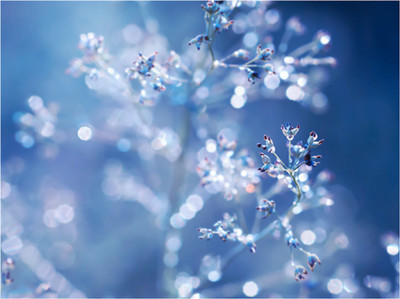
We humans are known to help out members of our own families. When it comes to business we call it nepotism. Now plants have demonstrated the same predilection, in a study published in the American Journal of Botany.
我们人类都知道一家人要互帮互助、和衷共济,在生意场上这就叫做裙带关系。现在,植物们也被证明有同样的倾向,这项研究发表在《美国植物学期刊》上。
Previous research showed that plants—in that study they used a plant called the Great Lakes sea rocket—can recognize the root systems of siblings from the same momma plant and will give them a more fair share of nutrients in the soil.
之前的一项研究已经证明,植物能够识别出与自身存在亲缘关系的植物根系,并会慷慨地与其分享土壤中的营养物质。科学家们在此项研究中参照的植物名为海芥。
This new study is the first to look above ground. Researchers at McMaster University in Canada potted North American impatiens. When the plants shared a pot with seeds from the same parent plant, they shared access to light by growing taller with more branches and fewer leaves. But when those same impatiens were planted with other impatiens—but not their siblings—they put more energy into growing more and larger leaves that could crowd out the non-relatives.
而这项新研究把视线转移到了地上,来自加拿大麦克马斯特大学的研究人员在实验室中盆栽了一种名叫北美凤仙花的植物作为研究对象。当这种植物和来自同一个母本种子形成的植株栽种在一个花盆时,它们会长得更高,枝干也会更多,不过叶子却很少,这样就能和自己的亲戚共享阳光了;而当这种植物和与自己没有亲缘关系的凤仙花共用一个花盆时,它们就会使劲长出更大的叶子,好与这个非亲非故的邻居竞争。
Researchers say the roots alert plants to the relationship of nearby plants, because when impatiens were planted near siblings but in separate pots, they didn't recognize their kin. Just goes to show that even in the plant world, family comes first.
研究者们称,是它们的根系识别出了周围的植物是否和自己存在亲缘关系,因为把两株存在“亲戚关系”的凤仙花分别栽种在不同的花盆里再并排放置,它们并没有认出彼此。这一切正好说明,即使在植物的世界中,家庭也是第一位的。
来源:可可英语 http://www.kekenet.com/hangye/201112/163998.shtml

